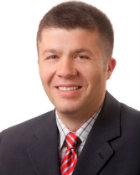When mathematical models are used to solve complex business problems, the benefits can really add up.
Proof is in the mathematical model created by Ivey Assistant Professor Mehmet Begen and Burcu Caglar Gencosman, a PhD student visiting Ivey from Uludag University in Turkey.
Related to this story

Begen and Gencosman built a model to improve scheduling and productivity at Beycelik Gestamp, a Turkey-based manufacturer of auto parts. Their work earned them a top prize in the recent “Optimize the Real World” competition hosted by FICO, a global predictive analytics and decision management software company. Begen and Gencosman were one of three teams each winning a US $10,000-prize for their use of analytics, or developing mathematical models with data and by obtaining managerial insights, to solve real business problems.
“I was pleasantly surprised. When I heard about the competition, I thought our project was a good fit, but I also thought we would be up against some very stiff competition,” said Begen. “This is very encouraging. It motivates us to work to get our research paper published. That is the next step.”
Beycelik Gestamp uses a variety of presses to give shape to metal sheets to produce auto parts such as doors. Production plan scheduling can be complicated, as not every press can produce each part and many parts require multiple presses of varying pressures. Multiple orders from many different customers, last-minute orders, and machine breakdowns further complicate the preparation of such production plans. A production schedule is produced by hand and typically takes more than 25 hours to prepare by an experienced company engineer, said Begen. The model Begen and Gencosman created uses the company’s data and can produce a schedule within half an hour, typically in less than 10 minutes. The model’s objective is to minimize the total production processing time makespan. When they tested the model with the company’s past schedules, the model was able to reduce the makespan by more than 20 percent on average. Begen said the estimated cost savings for Beycelik Gestamp using this model is 500,000 euros annually due to reduced labour and energy costs. Another way to look at the savings is that the company’s capacity is effectively increased by 20 per cent.
“Sometimes a small model can make a big impact on a company. It can help solve issues such as capacity planning, scheduling, production planning, demand forecasting, prediction of a new product/business line success, cost minimization, profit maximization, revenue management, portfolio optimization, pricing, and much more," said Begen. “It’s always good to work on a real problem. Analytics is a powerful tool that can solve many problems in any industry, from transportation to service and from manufacturing to finance. We can observe the system, work with data, and come up with a model that allows us to see what would happen if we change some aspects of the system.”
Begen said Gencosman has informed Beycelik Gestamp of their research and the company has also expressed an interest in investigating it further. The research project is part of Gencosman’s PhD thesis and Begen was her PhD supervisor during her time at Ivey.



